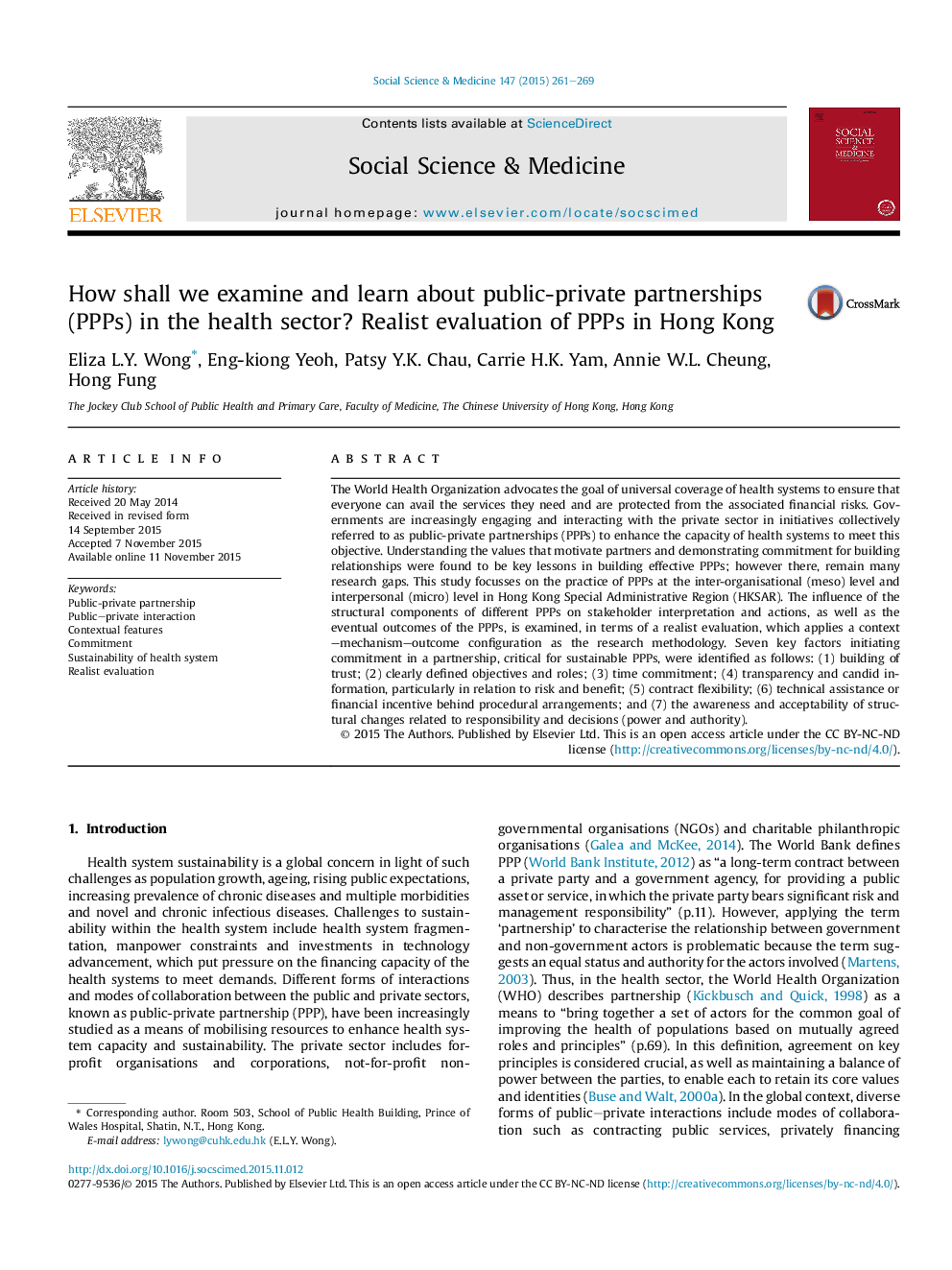| Article ID | Journal | Published Year | Pages | File Type |
|---|---|---|---|---|
| 7331299 | Social Science & Medicine | 2015 | 9 Pages |
Abstract
The World Health Organization advocates the goal of universal coverage of health systems to ensure that everyone can avail the services they need and are protected from the associated financial risks. Governments are increasingly engaging and interacting with the private sector in initiatives collectively referred to as public-private partnerships (PPPs) to enhance the capacity of health systems to meet this objective. Understanding the values that motivate partners and demonstrating commitment for building relationships were found to be key lessons in building effective PPPs; however there, remain many research gaps. This study focusses on the practice of PPPs at the inter-organisational (meso) level and interpersonal (micro) level in Hong Kong Special Administrative Region (HKSAR). The influence of the structural components of different PPPs on stakeholder interpretation and actions, as well as the eventual outcomes of the PPPs, is examined, in terms of a realist evaluation, which applies a context-mechanism-outcome configuration as the research methodology. Seven key factors initiating commitment in a partnership, critical for sustainable PPPs, were identified as follows: (1) building of trust; (2) clearly defined objectives and roles; (3) time commitment; (4) transparency and candid information, particularly in relation to risk and benefit; (5) contract flexibility; (6) technical assistance or financial incentive behind procedural arrangements; and (7) the awareness and acceptability of structural changes related to responsibility and decisions (power and authority).
Related Topics
Health Sciences
Medicine and Dentistry
Public Health and Health Policy
Authors
Eliza L.Y. Wong, Eng-kiong Yeoh, Patsy Y.K. Chau, Carrie H.K. Yam, Annie W.L. Cheung, Hong Fung,
